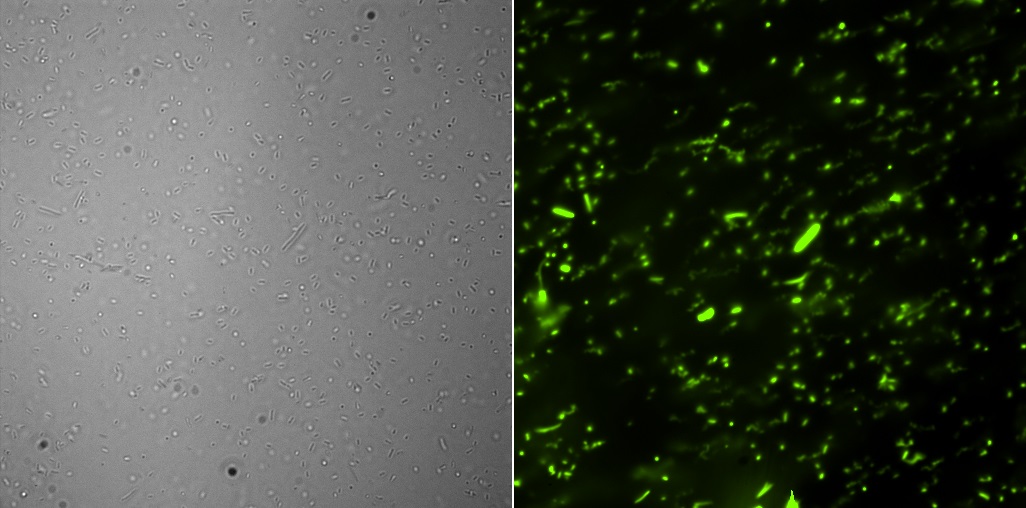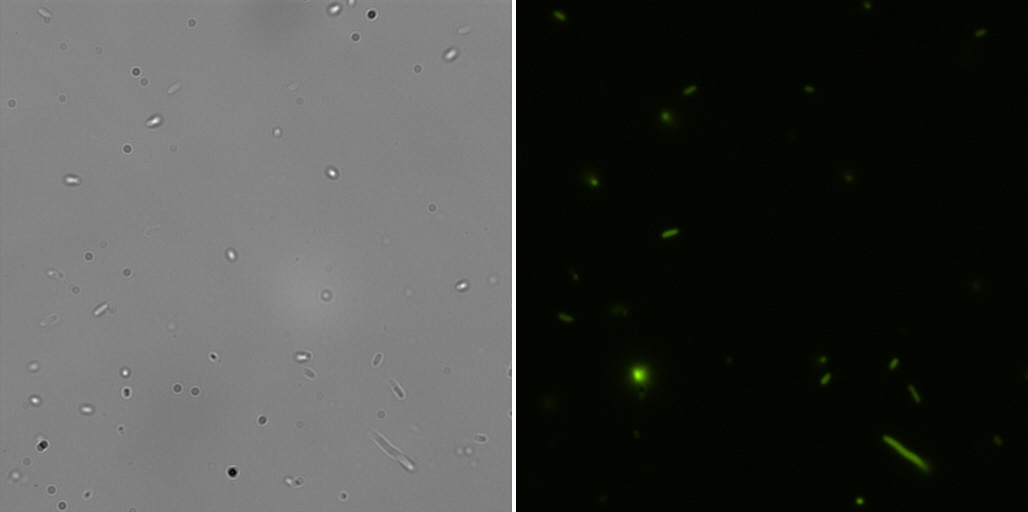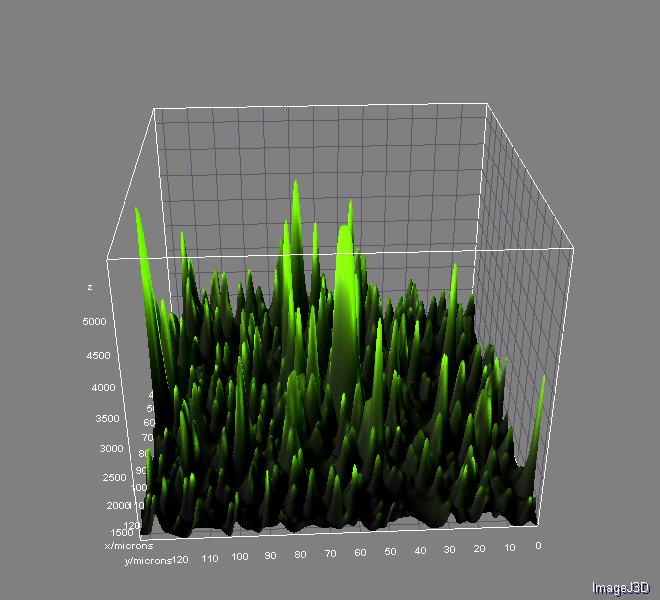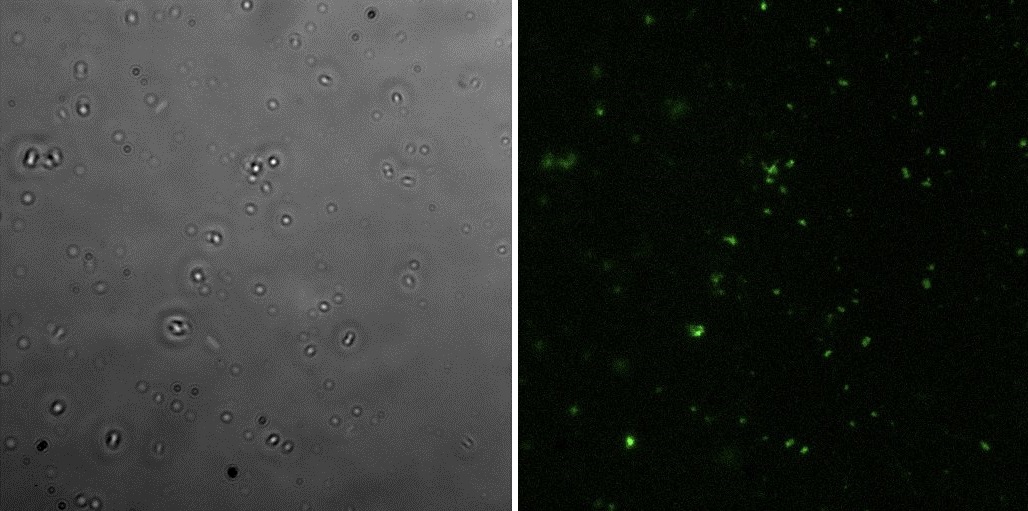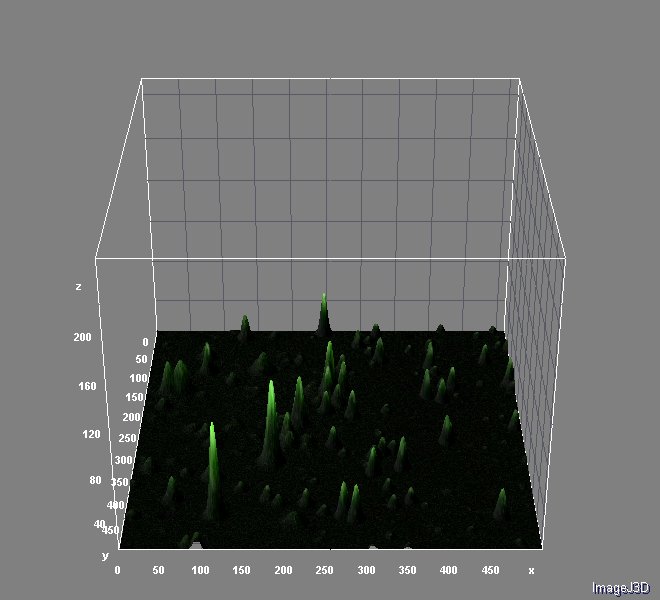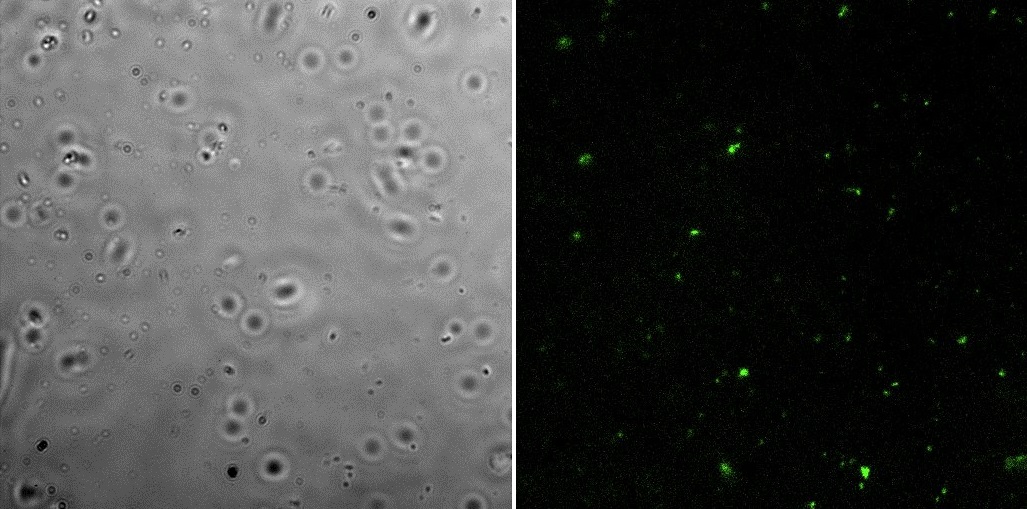Team:Colombia/Interlab
From 2014.igem.org
Camilog137 (Talk | contribs) |
Camilog137 (Talk | contribs) |
||
| Line 52: | Line 52: | ||
<p> | <p> | ||
| - | The | + | Devis were comfirmed by profile digestion observed in agorose gel. The devices were digested with EcoRI and PstI. For allrestrictions we obtained two bands (the plasmid and the device) with the expected sizes in all cases. |
| - | + | ||
| - | + | ||
| - | + | ||
| - | + | ||
</p> | </p> | ||
| Line 93: | Line 89: | ||
</p> | </p> | ||
<br><br><br> | <br><br><br> | ||
| - | <b> <font size="10"> | + | <b> <font size="10"> tested Parts </font> </b> |
<br><br> | <br><br> | ||
<b><font color="#8A0808" size="5" >BBa_I20260 (J23101-B0032-E0040-B0015)</font></b> | <b><font color="#8A0808" size="5" >BBa_I20260 (J23101-B0032-E0040-B0015)</font></b> | ||
Revision as of 02:50, 4 October 2014
Interlab Study
This year Colombia Team-iGEM is participating in Interlab Study! We are glad of share our results and measurements. You can find them in the tabs below, you can find the specifications of our equipments and the methodology we used as well.
Methods
Strains and culture
All transformations were carried out in ''E. coli'' TOP10. This bacterium was cultured in LB (supplemented with the appropriate antibiotic for each case) at 37 °C.
Transformations and plasmid DNA extraction
This process was carried out as indicated in our protocols page.
All the pictures shown here were taken using a Eclipse-Ti Nikon® ECLIPSE Ti inverted microscope equiped with an ANDOR iXon Ultra 897 camera. The filter used was FITC.
The fluorometric measurements were taken using a DGEASGAES. The measurements were carried out three times while 10 min with an ON culture diluted in a 1:10 proportion in 2mL of fresh LB, with a previous measuring of OD.
Image analyses were performed with ImageJ 1.46r using Nikon ND Reader and interactive 3D Surface Plot pluggins. We used ''Analyzing fluorescence microscopy images with ImageJ'' (Queen's University Belfast 2014) as guide. You can download this useful material here.
Validation
Devis were comfirmed by profile digestion observed in agorose gel. The devices were digested with EcoRI and PstI. For allrestrictions we obtained two bands (the plasmid and the device) with the expected sizes in all cases.
You can check the size of each device with the next table:
| Name | Backbone + device / bp | Device / bp | Linearized backbone / bp |
| BBa_I20260 | 3669 | 919 | 2750 |
| BBa_J23101 + BBa_E0240(B0032-E0040-B0015) | 2981 | 911 | 2070 |
| BBa_J23115 + BBa_E0240 (B0032-E0040-B0015) | 2981 | 911 | 2070 |
tested Parts
BBa_I20260 (J23101-B0032-E0040-B0015)
This part corresponds to GFP under the constitutive promoter J23101, with B0032 as RBS and two stops (B001 and B0010). The backbone of this already constructed device is pSB3K3 with kandamycin resistance.
Fluorescence microscopyHere are the images of the transformed cells with this device:
And the analysis for relative fluorescence among them performed from the last image above:
dtgdxhedh
BBa_J23115 + BBa_E0240 (B0032-E0040-B0015)
This part is identical to the last one, but built by us on a pSB1C3 backbone.
Fluorescence microscopyHere are the images of the transformed cells with this device:
And the analysis for relative fluorescence among them performed from the last image above:
Ejemplillo
BBa_J23101 + BBa_E0240 (B0032-E0040-B0015)
The only difference between this part and the last one is the constitutive promoter, which in this case is J23115. The plasmid, RBS and stops are all the same.
Fluorescence microscopyHere are the images of the transformed cells with this device:
And the analysis for relative fluorescence among them performed from the last image above:
dtgdxhedh
 "
"






